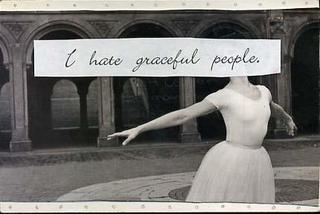Concept art Redux
first, a nod to summae for the comments around my post on concept art.
Concept art. I like summae's choice of a definition, as it seems to sum what makes sense to me, but which I have a difficult time expressing. "The idea is the machine that makes the art." Fair enough. The art is all about the idea. R Mutt's Fountain, or Duchamp's Urinal, does seem to accomplish this. It's the idea that is communicated; never mind that the item was supposedly unimportant to Duchamp's end.
So, where does this take me?
Concept art: art about the idea.
Does that mean that it's necessarily devoid of craft? I don't see why. Maybe the craft would detract from the message, but carefully done it seems to me that it could just as easily contribute to it. If fact, from that perspective, it would seem to me that art that is well-crafted, such that the aspects of the craft lend their voice to the intent would be a great example of the unity between concept and experience. Certainly, I don't believe that the craft should ever take over (unless, of course, that is the message). But that it can in many cases be an effective vehicle for the message, seems to me only natural. It becomes an extension of the intention. Which is to say it becomes a manifestation of the idea. Which is the point.
Then there's the question of the experience. In my personal opinion, ideally the art should speak for itself. In this I agree with summae. Otherwise is it the art that is communicating the concept, or is it the written accompaniment? I suppose, again, with some concepts that this could actually be the intent. That's the joy of concept art. However, the general rule of 'let the art speak for itself' still holds, in my opinion.
Which leads me to the question of evaluation. My acid test is this. It may be concept art, but it is only effective concept art (good and bad? - Another discussion) if it can communicate something of its 'idea' intrinsically to a broad (read: not just artists and art historians - with the regular clause of unless that's the point) audience. As such. By the simple virtue of existing.
